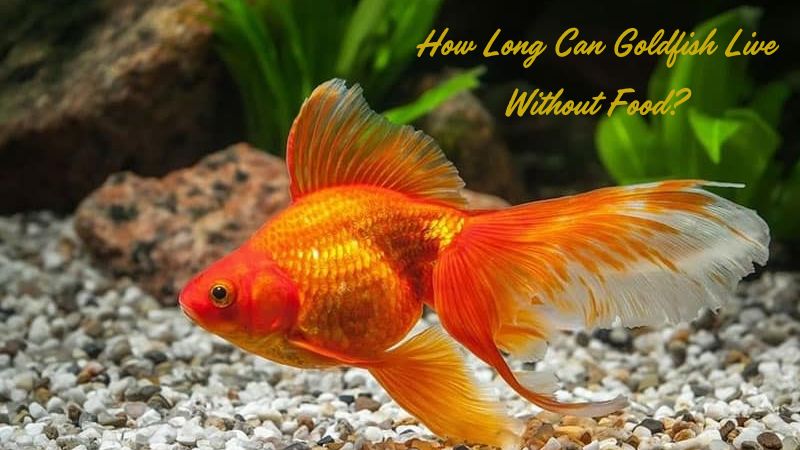Goldfish are known for their resilience, but even these hardy creatures have limits. If you’re planning a trip or facing a temporary disruption in your feeding routine, you might wonder: How long can goldfish live without food? Join Tropical Fish Haven to find the most accurate answer.
How Long Do Goldfish Live?
Goldfish are often chosen as initial pets due to their affordability and perceived simplicity. While they may not require as much maintenance as dogs or cats, goldfish still need proper care and attention to thrive. A common query among new goldfish owners is, ‘What is the lifespan of a goldfish?’
Typically, goldfish live for 10-15 years, with some varieties extending well into their 30s. Remarkably, there are documented cases of the oldest goldfish surpassing 40 years of age.
Breeding is a crucial yet often overlooked factor influencing a goldfish’s lifespan. It determines the fish’s size and shape, both significant factors in determining their longevity
Smaller types of goldfish typically enjoy longer lifespans owing to their slower growth rate, whereas larger varieties are more susceptible to health problems stemming from inbreeding.
Additionally, it’s crucial to consider the number of goldfish brought into your home and how they are housed together. Overcrowding fosters aggression and competition for food and space, heightening stress levels that can notably reduce their lifespan.
How to Care for Pet Goldfish to Help Them Live Longer
Use Filtration and Aeration
Filters are essential for removing waste and particles from the water, while aeration pumps oxygenate the water, promoting healthy circulation. Both are vital for creating and maintaining a healthy environment for your goldfish, helping to ensure it lives a long and healthy life.
Test And Maintain Water Quality
Goldfish are known for their hearty appetites and significant waste production, making regular testing and maintenance of water quality essential. Indeed, water quality is crucial in determining the lifespan of a goldfish. Ensure your fish stays healthy by monitoring pH levels, as well as water temperature, nitrate, nitrite, and ammonia levels.
Goldfish thrive best in a pH range of 6.5 to 7.5 and prefer water temperatures between 68 and 75 degrees Fahrenheit. Nitrate levels should be maintained below 50 parts per million (PPM), with nitrite levels below 0.2 PPM, and ammonia levels below 0.1 PPM. These parameters apply to both goldfish ponds and aquariums.
In an aquarium setting, ensuring your goldfish thrive for the long term involves maintaining excellent water quality through regular water changes. Typically, it’s advised to perform 25% water changes every two weeks, particularly when housing multiple goldfish in the same tank.
For instance, in a 10-gallon aquarium, this would entail removing approximately 2.5 gallons of water and replenishing it with fresh, dechlorinated tap water. Always acclimate any new fish carefully before introducing them to the tank to prevent temperature shock, which can lead to illness or mortality.
Provide Plant Cover
Ensuring the longevity of goldfish involves providing appropriate plant cover. Plants offer numerous advantages to goldfish, such as hiding spots and protection from predators. Aquatic plants also act as natural filters, purifying water by eliminating toxins and promoting oxygenation, which supports beneficial bacterial growth.
How Long Do Different Goldfish Types Live?
Goldfish Lifespan Variations
Common goldfish, scientifically known as Carassius auratus, typically live between 10 to 15 years in captivity, depending on the quality of care provided.
Fancy Goldfish Lifespan
Fancy goldfish, characterized by specific breeding for traits like bulging eyes or elongated fins, generally face more health challenges compared to common goldfish. Nevertheless, with diligent care, fancy goldfish can often thrive for 8 to 10 years in captivity.
How Long Can Goldfish Live Without Food?
The question of how long goldfish can survive without food is a common concern among both novice and seasoned aquarists. Goldfish are remarkably resilient and can typically go without food for up to two weeks without significant harm. In some cases, particularly under optimal conditions, certain goldfish have been known to survive for as long as ten weeks without food, though this is not advisable or recommended by experts.
Goldfish are opportunistic feeders, naturally inclined to consume as much food as they encounter, sometimes to the detriment of their health. This behavior often leads to overfeeding rather than underfeeding in aquarium settings.
It is crucial for goldfish owners to strike a balance in feeding practices to ensure their pets can live out their full life expectancy. Overfeeding can lead to digestive issues, compromised water quality, and ultimately shorter lifespans. On the other hand, withholding food for extended periods can stress the fish and weaken their immune system.
Therefore, it’s essential to feed goldfish an appropriate amount of food at regular intervals, taking into consideration their age, size, and environmental conditions. Monitoring their feeding habits and adjusting accordingly will help maintain their health and longevity in captivity.
How Long Can Goldfish Live Without Water?
Water is essential for the survival of a goldfish, but surprisingly, they can endure longer than expected out of water.
In a water-free environment with adequate humidity and moderate temperature, goldfish can typically survive for at least 3 hours. However, it’s important to note that this is far from ideal for their health, and intentionally removing a goldfish from its aquatic habitat should never be attempted.
Conclusion
While goldfish can endure periods without food, it’s important to prioritize their well-being. Understanding their tolerance for fasting allows you to plan accordingly and ensure their health isn’t compromised. If you anticipate an extended absence, consider utilizing feeding solutions or enlisting a caretaker to maintain their regular diet.





